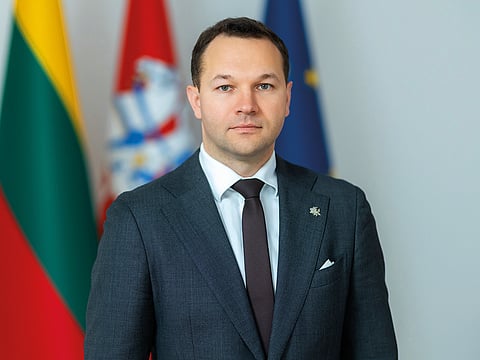Two Nations, One Mindset: Unlocking new opportunities together
Agility, talent and collaboration unite a Baltic startup hub with a leading Gulf innovator

Lithuania and the UAE: Two small nations thinking big
The distance from Abu Dhabi to Vilnius looks large on a map, yet the two places feel closer than geography suggests. Both have learned that agility is a strategy. Both prize talent over rhetoric. Both turn ideas into impact. What connects the UAE and Lithuania is not history or climate, but a shared instinct for getting things done.
A startup state meets the city of possibility
Vilnius feels instantly familiar to anyone who knows Dubai or Abu Dhabi’s innovation districts. Rules are clear, decisions are quick, and services are digital by default. A company can open in a day. Permits and taxes are handled online. Regulators speak to entrepreneurs in the language of solutions. This is how Lithuania became Europe’s leading fintech hub and why global players from Nasdaq to Thermo Fisher have chosen to grow there.
The same rhythm runs through the UAE’s free zones and research clusters. Both places reward pace and precision. Both understand that an investor’s time is capital. This shared culture makes cooperation natural rather than formal.
We see the United Arab Emirates as a highly attractive market, offering significant opportunities for mutually beneficial cooperation. Lithuanian companies bring expertise in biotechnology, ICT, renewable energy, advanced manufacturing and the space sector providing real value and innovation to our partners in the United Arab Emirates. “Lithuania also offers very attractive investment conditions: project development times have been reduced across Lithuania supported by renewable energy, skilled talent and a strong culture of innovation. As businesses in the UAE increasingly recognize the quality of Lithuanian solutions, I look forward to expanding our collaboration and unlocking new opportunities togetherEdvinas Grikšas, Minister of the Economy and Innovation of the Republic of Lithuania
Science with purpose
Lithuania’s scientific record often surprises first-time visitors. The CRISPR gene-editing tool that reshaped modern medicine was born in Vilnius through the work of Professor Virginijus Šikšnys. The country also builds some of the world’s most powerful scientific lasers. Professor Vladas Algirdas Bumelis is now leading Bio City Vilnius, a seven-billion-euro biotechnology campus that will be the largest of its kind in Europe.
None of this happened by chance. It reflects a national habit: universities, business, and the public sector pulling in the same direction and asking what problem a discovery will actually solve.
The UAE follows a similar path in health technology, space, and clean energy. In both countries, science is expected to travel beyond the lab and into life. That is where cooperation becomes real.
People first
If there is one reason investors choose Lithuania, it is the people. Engineers, researchers, and designers are multilingual, digitally fluent, and globally minded. English is universal, and the STEM pipeline is strong. That is why Lithuanian teams work with NASA and SpaceX, and why Baltic software quietly powers global products.
The UAE has built the same strength in its own way by drawing talent from every continent and making excellence a daily habit. In both places, people, not subsidies, are the real advantage. That shared mindset makes collaboration effortless.
Partnership in motion
The most promising areas are where strengths meet. In life sciences, Emirati capital and regional networks can accelerate Lithuanian breakthroughs in diagnostics, treatments, and biomanufacturing. In fintech, Lithuania’s licensing experience and the UAE’s market access can create platforms serving Europe, the Gulf, and Africa from day one. In artificial intelligence and cybersecurity, universities and startups can move fast together because both ecosystems are built for experimentation with responsibility.
There is also a policy dimension. Lithuania’s regulatory sandboxes and the UAE’s ability to scale new ideas create a powerful loop, where solutions can be tested in one setting, refined in the other, and exported together.
A practical connection
Lithuania is a northern gateway to the European Union’s single market. The UAE is a southern hub linking Asia, Africa, and Europe. Each extends the other’s reach. More importantly, both understand the rule of this century: influence comes not from size, but from the speed and quality of execution.
That is why the line from Abu Dhabi to Vilnius is a corridor of possibility, built by two nations that think big, move fast, and believe that ambition is meant to be shared.
Sign up for the Daily Briefing
Get the latest news and updates straight to your inbox



